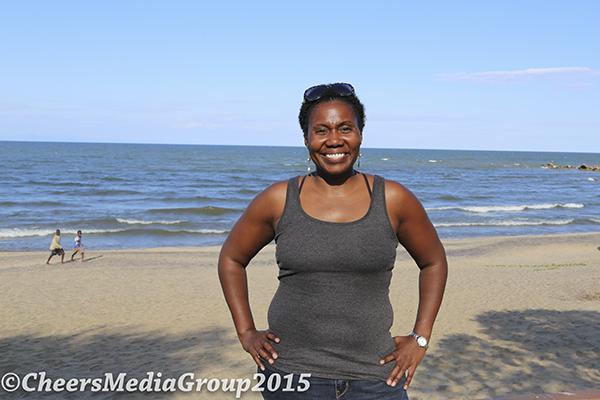Updated: Sept. 9, 2015 at 2:14 p.m.
An SMPA professor is taking on a big task: figuring out how we’ll feed the world in 2050.
This past summer, assistant professor of media and public affairs Imani Cheers spent more than two weeks visiting four countries in Africa as part of the Land O’ Lakes Global Food Challenge Emerging Leaders program. The program focuses on developing ways to feed more than 9 billion people by the year 2050 and selects university students who craft proposals to meet this challenge.
Cheers, who has taught at SMPA since May 2013, shot footage on the trip that she will use to produce videos for Planet Forward and Land O’Lakes.
Cheers worked with junior Anna Sumi who proposed an app that tracks users’ water usage and donates to a water charity each time they use less water than the average American.
“People for the most part understand they should conserve water but they don’t understand how each and every decision has such a huge impact on their water usage, especially their choice of diet,” Sumi said.
Sumi, who is majoring in journalism and currently studying abroad in London, said in an email that she was eager to participate in the program. She said she had always been interested in climate change and public policy issues, but hadn’t considered how it connected to food production.
“When Dr. Cheers told me about the internship, I knew I had to do it. Also, the travel opportunity in itself was almost too much to pass up,” she said.
Cheers and Sumi, as well as other students and faculty advisers, spent a week in Malawi to see Land O’Lakes International Development projects. They watched how the program staff worked with local goat, cassava and rice farmers. At each site, they learned how the program was trying to hone in the best methods of food production.
“We really wanted to fill the days with a lot of information, a lot of site visits. We kept going out. We met farmers,” Cheers said.
In addition to meeting farmers in Malawi, they learned about village savings and loans programs, and the importance of microlending, or making small loans to small companies.
Though Cheers had always been interested in environmental issues like climate change, seeing the documentary “An Inconvenient Truth” in college inspired her to take action.
“The fact that I was able to sit down and see compelling images and statistics and numbers right in front of my face was the thing that changed my perspective and my life,” she said.
Cheers said that GW brings a different perspective from other universities in the program, some of which had full agricultural campuses, because SMPA focuses on media and less on agriculture.
“We’re not farmers, but we do bring policy, and understating of a policy and an understanding of sort of a larger aspect of the overall ideas of agriculture than some of our other partners do,” she said.
This post was updated to reflect the following correction:
The Hatchet incorrectly reported that Sumi is studying abroad in Paris. She is studying abroad in London. We regret this error.






